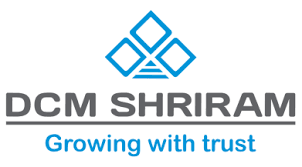DCM Shriram Foundation and Sattva Knowledge launches report to address water crisis in Indian agri sector
The report recommends using science and data to make better decisions, focusing on local agriculture ecosystems (LAE).
DCM Shriram Foundation, supported by DCM Shriram, a leading conglomerate in India with a strong presence in agriculture, and Sattva Knowledge Institute, a knowledge platform for the impact ecosystem, today launched the report titled, Transforming Crop Cultivation: Advancing Water Efficiency in Indian Agriculture to identify actionable solutions to address the ongoing water crisis in the Indian agriculture sector.
Agriculture today accounts for 90 per cent of the water withdrawals in India, an indication of how water-intensive this sector is. Furthermore, within the agriculture sector alone, irrigation uses 84 per cent of the country’s precious water reserves, followed by domestic and industrial sectors. Unfortunately, this trend is estimated to continue, as per 2025 and 2050 projections, unless systemic changes are introduced to evolve from high water use methods to more sustainable options in the agricultural sector. These systemic changes will need to address complex challenges, such as the myopic reliance on philanthropic funding, limited scalability of initiatives beyond pilot projects, and inadequate collaboration among stakeholders.
Addressing these challenges will require catering to Local Agricultural Ecosystems (LAE), whilst also enabling the scale of these solutions and techniques across states. Solutions that account for the LAE will not only foster localised insights to tailor water- efficient techniques for individual farmers and specific regions, but also mobilise effective government and industry involvement to enable scale.
In the long term, addressing the water crisis from the agriculture sector will require diversifying funding sources, fostering partnerships with government and private sector actors, and promoting sustainable financing mechanisms.
Debaranjan Pujahari, Principal and Head, Agriculture Practice Area, Sattva Knowledge Institute, expressed the urgency of the situation by stating, “India is the most populous and the most water-stressed agrarian economy in the world. Our food security demands the production of water-intensive crops, exerting pressure on our water resources. Driving on-farm water efficiency in agriculture is the need of the hour if we want to avert the impending water crisis in India”.
Recognising the gravity of this situation, DCM Shriram Foundation and Sattva Knowledge Institute have undertaken a comprehensive study to understand the complexities of water scarcity and the use of water in Indian agriculture. The study sheds light on the intrinsic link between water and agriculture, emphasising the challenges posed by cultivating water-intensive crops like rice and sugarcane.
The report brings together insights from more than 50 public reports and over 40 sectoral experts to present three focused, actionable recommendations to scale water efficiency in agriculture.
● The first recommendation is to build a public tool that can offer tailored techniques and practices contextualised to LAEs. By providing personalised recommendations aligned with the unique characteristics of each ecosystem, the aim is to empower industry players, policy, and smallholder farmers to make informed decisions, driving sustainable practices at the grassroots level.
● The second recommendation introduces the concept of a Water Vulnerability Index, enabling science and data-led business and policy decisions. This comprehensive index consolidates diverse data parameters, offering stakeholders a reliable resource to guide their actions. By integrating scientific insights into decision-making processes, we pave the way for more effective water management practices and informed policy interventions.
● The final recommendation proposes developing a model for collaborative action among essential stakeholders in the ecosystem, including government entities, to encourage joint commitments to harness the industry’s capabilities to promote greater adoption of water-efficient practices in agriculture. This framework aims to facilitate collective learning and advocacy efforts.
Aman Pannu, Vice President, Corporate Communications & CSR and President, DCM Shriram Foundation expressed her optimism about sharing this report in collaboration with Sattva Knowledge Institute, “Water scarcity poses a formidable threat to India’s agricultural landscape, demanding urgent attention and collaborative action. Our findings highlight the urgent need for collective action and innovation to safeguard our water resources while ensuring food security for all. We believe that by leveraging science, data, and strategic collaboration, we can drive transformative change and build a sustainable future for generations to come.”
The report recommends using science and data


